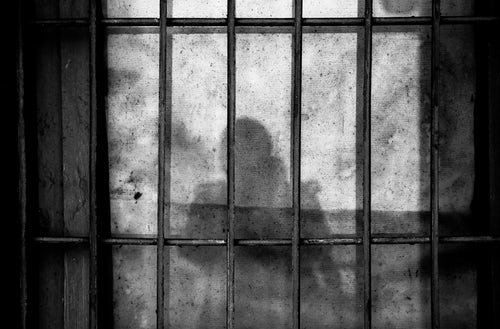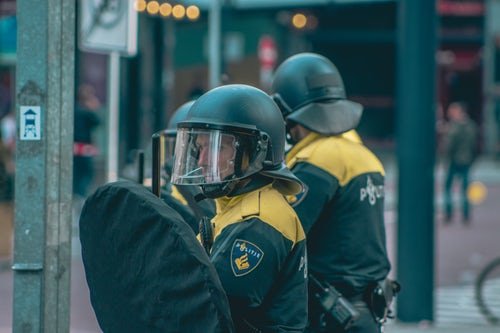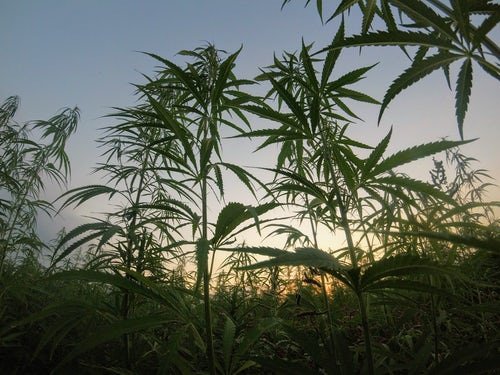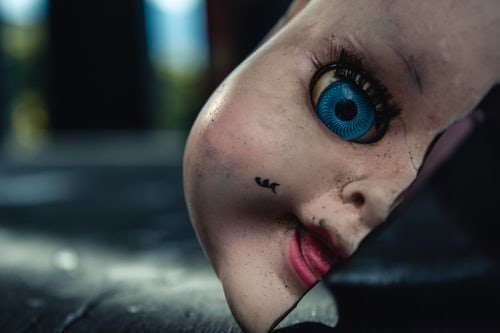Adult Children: How "Slippery" Terms Serve the Authorities and Harm Kids, Teens, and Everybody Else
An individual who I know, told me that he awoke to CPS pounding on his door the other day. When he answered, they said that they needed to do a walk-through of his house because his sixteen year old daughter (with whom he has not spoken in years) would be coming to live with him. He had a extremely messy divorce and his daughter sided with his ex-wife and refused to speak with him. As it turns out, his ex-wife committed suicide that morning and his daughter had found herself without a place to live (the reasons for the suicide are still unknown). He told them that he would be happy to take her in but he did not believe that she would willing live with him because, from her perspective, he was the cause of her mom's suffering (that is almost certainly untrue but it is also something that one can't simply explain to a grieving teenager). They said that they would send the police to force her to come, if she refused. Knowing that being forced to live with a person who is a stranger to her (and one that she hates) would probably be one of the worst things that could be done to her, he asked if she could choose to live with someone else and they told him that, as a "child," she is incapable of making those sorts decisions for herself and that if he did not participate in forcing the situation on her, he could face criminal charges for child abandonment.
There is also another sixteen year old that I know of but, in his case, the state has very different view of what it means to be that age. When I was a teenager, I saw a year old friend get arrested for possessing a trivial amount of weed. When he went to court, they tried him as an adult and put him into the adult criminal justice system, even though he was too young to legally buy a pack of cigarettes or drive a car by himself. It would seem that, according to the authorities, sixteen is old enough to be held responsible for one's own actions.

There is more to both of those stories but the contrast between the two shows how the definitions of "child" and "adult" shift depending on the situation. To put things bluntly, the way those terms are defined is wildly inconsistent. That inconsistency might cause a person to think that the systems of authority which control these definitions are incompetent but are they? When one looks at how these varying definitions of "child" and "adult" are used, the "slippery" application of the terms begins to appear as though it serves a purpose that has nothing to do with protecting the well-being of children and teens or making our society safer. To be specific, the definitions of "child" and "adult" seem to always, conveniently, shift in whichever direction that is to the benefit of the system of authority. When a child is called an adult, is easier for law enforcement and the criminal justice system to rob them of their future and, by doing so, hinder their community's potential for advancement. When a teen is said to be too young to make or his or her own decisions, they are disallowed from making choices that are inconvenient to the system of authority. If kids are painted as adults, their suffering or mistreatment that is contributed to or caused by the system of authority is made more tolerable in our minds. If young people's potential for competency is ignored and they are portrayed as utterly helpless, oppressive, needless, and often harmful acts of "protection" appear to be appropriate. To state it simply, the inconsistent definitions of "child" and "adult" function to both justify and help facilitate the abuse of young people, their parents, and their communities.
I have previously written about how the uneven enforcement of laws (particularly drug laws) is used to oppress poor and minority communities with the aim of preventing those communities from gaining political and economic power and I believe that changing the definitions of "child" and "adult" also helps to accomplish that goal. I have seen news stories in which very young kids (some of them are not even in their teens) are being charged as adults for committing various crimes. The authorities will claim that they are justified in doing this because the kids are "old enough to understand the consequences of their actions" (even though they will also make the opposite point when it is convenient to them) and need to be "taught a lesson" but let's take a look at what is really going on (in addition to putting the kids into unnecessary danger by forcing them into contact with the murders and diddlers who inhabit our jails and prisons, that is). By treating the minors from targeted communities as adults, the authority can ensure that those young people never have a chance to succeed when they actually reach adulthood. If it is a felony that they are charged with (like having a tiny amount of weed "on school grounds"), they could lose their right to vote, be denied federal finical aid if they want to go to college, and be barred from being hired to many decent paying positions but even a misdemeanor can do quite a bit of damage to a persons's future potential. Obviously, this is harmful to the affected individuals and to their families but it also impacts the larger communities that they are a part of and I think that is the real intention behind the authority's actions. If "They" remove enough earning potential from a community, it will remain disproportionately poor and, for that reason, under powered (politically speaking) relative to the size of it's population. Removing voting rights and educational opportunities serves the same oppressive purpose, too.

Labeling kids as adults also makes their suffering more tolerable to a society. When we hear that they are sending kids to prison, we tend to be uncomfortable with the idea but if the authority changes the definition of "child" and enough of us accept that definition (and sadly, enough of us do), things start to sound better than they really are. We hear the authorities say "old enough to understand the consequences" over and over again and we start to accept that as the meaning of word "adult." This causes the kids to become "adults" in our minds, even though they are just as young and (understandably) foolish as they ever were. When that happens, people stop caring about the issue because no one really minds to see an "adult criminal" being sent away. Justifying the imprisonment of the youth is not the only way in which this "slippery" terminology is exploited by the systems of the authority. It came out a few years ago that any male of "military age" (which could be a rather a young teenager depending on which military and what time period that we are talking about) who was killed in a drone strike was classified as an "enemy combatant." Again, people might get upset to hear that the government is incinerating a bunch of adolescents in our name so they tell us that anyone who is old enough to semi-competently operate a weapon is adult enough to be "The Enemy."
Returning to my first story, the actions of the authority (CPS in that case) are entirely self-serving and were taken without regard for the well-being of the girl, her situation, or her father. While my friend would like to have a relationship with his daughter, he (and just about everyone else) knows that forcing the relationship by having the police drag her into his house during her time of extreme grief would be harmful to the her and her already strained emotional health. The thing is, CPS knows that placing her with her biological father requires a lot less time and expense than helping to arrange other, more preferable, placement for her and, even though doing this is going to cause her a lot of trouble, they decided to force the issue by shifting the definition of "child." Now, sixteen isn't "old enough to understand consequences" because it is serves the financial interest of that authority to present the "child" as utterly helpless.
The "helpless child" angle can also be used as a means to persecute adults for things that the authority does not approve of. The authority decided that it does not like people smoking weed for self-serving reasons (I have covered those in other posts, if you are interested in that topic) and it threatens to take people's kids away to create a climate of fear among users, for example. "Their poor helpless little souls need to be 'protected' from those 'dangerous drug users,'" the system will claim. Of course, the kids or teens are far better off with pot smoking parents than they are with potentially malevolent strangers but their safety is not the concern in these sorts of situations. The authority wishes to make an example of people by excessively punishing them for disobeying its oppressive and nonsensical drug laws. This is not to say that there are not situations in which custody does need to be removed. With instances of real abuse, exploitation, or neglect there is, obviously, a just cause to take action to prevent those things. However, the system that is supposed to address those real problems is also exploited by authorities to coerce people into compliance and encourage submission to the system through fear. "If you want to keep your kids, you'd better do what we say, no matter how unjust our request might be" says the state.

What can we do to improve this situation? I can't tell you the answer. It is a complex issue and organizing the type of political and social action that would be required to fix the broken criminal justice and child protective systems is not an area where I have any expertise. However, we can, in the meantime, guard ourselves against the propaganda that we are fed about young people and their ability or inability to understand consequences. Most of us know that a fourteen year old has no business being in the adult criminal justice system in all but the most extreme of situations and most of us also know that the same fourteen year old is perfectly capable of making a grilled cheese sandwich for lunch, while his or her parents smoke a joint in the back yard. That means that we can pretty easily call out the lies that are presented to us about children or teens and their capabilities or lack thereof. More generally, we can take time to think about how the definitions of words can be altered to sway our opinions in favor of actions that are not in our interest. If a word seems too "slick" in its usage, we should avoid blindly accepting its meaning without due examination. That won't solve these problems but I believe that it is a good way to start thinking about how to solve the problems.
Peace.
All the images in this post are sourced from the free image website, unsplash.com.

Nice work man! Damn fine! Keep this up man!
Just don't stop doing what you are doing!
It's funny, when I was reading the first story I was thinking "why doesn't she just go to court and get emancipated?" That's when a child has themselves declared an adult by the court, so in fact it can go both ways.
I think the justification for charging kids as adults is not that they understand the consequences usually it takes the form of "they committed an adult crime thus they will be treated as an adult".
Society is starting to come around to the fact that cannabis is not so dangerous, in the recent legalization law in MA it explicitly states that people can't have their kids taken or have it held against them by social services for using cannabis. But how would you feel in the much more common case where people lose their kids because they are meth addicts? is a meth addict who is getting CPS called on them an acceptable parent?
She probably go that route but the goal of cps in that case was to dump her off as quickly as possible whether that was actually the best option or not. If that is something she wants to do, it would be on her and her guardian to go through the courts. I don't know how long that takes and she is 18 months or so away from being a legal adult.
I get where you are coming from with the adult crime thing but the ability for a teen to understand his or her actions comes into play. There was a famous case from the early 2000's in which two young teens (who didn't understand that the WWE stuff was fake) were "wrestling" and one accidentally broke the others neck and killed him. His ability to understand what he was doing was a major factor in his being tried as an adult.
As I mentioned, there are certainly times when stepping in to remove kids is necessary. With drugs of any type, I don't think a person being addicted to something is enough if there is no abuse or neglect related to it. If the meth head still does what he or she needs to do, I wouldn't support taking the kids. If on the other hand the user forgets to feed his or her kids then there is a just cause to take action but the reason for the action would be the lack of care and not the drug use itself.
I recall that case, I think it lead to some sentencing reform.
Which he promptly violated! And then a year later he robbed the pizza man with a gun!
Maybe they were right to put him in prison the first time.
https://en.wikipedia.org/wiki/Lionel_Tate#Original_sentence_overturned
They could have been but that is still an over used line of reasoning in my opinion.
The big issue for me though is the lack of consistency in the terms. I use the discussion of "child" and "adult" as a means to focus on that issue but this could be applied elsewhere too. In my mind, if someone is adult enough to be treated like one by the criminal justice system, he or she is also old enough to decide if he or she wants to live with a person or not. If they are not mature enough to do that, they cannot be held to the same standards as adults.
We have an image in our minds of what those words represent but their usage is so slick that they can be made to mean whatever the user wants them to mean. However, we maintain our preexisting image of what they mean. This creates a disconnect between what is being presented to us and the reality of a situation. That disconnect can be exploited by someone with an agenda (like an authority that wishes to push the public into supporting its actions) to mislead people.
That being said, I don't ask that people necessarily take my position. I only really ask that we take a little time to think about how the words are used and about whether that usage is serves a purpose for the user. From there, the conclusions a person comes to are on them.
whenever there is a law there is always some sort of exception or loophole so legally a child is a child until they are declared to be an adult or they turn 18 although in some cases people remain children even after they turn 18 because they are developmentally disabled. Someone might never really become an adult. In Sharia law women are always considered minors, I don't know if they have any exceptions though.
I agree that a line has to be drawn but that is a separate (but related) issue.
I cover these topics as stand alone pieces of work but the overarching theme is the an examination of the "abuse" of language and argument with the intention of generating a predetermined response in the target audience. These terms are supposed refer to that legal definition but in practice that is not how they seem to function.
We can see the same type of thing elsewhere to. I also covered the use of overly broad categories because that seems to essentially serve this same purpose as these slick terms but in that case, I chose to use the term "drugs" as my example.
I kind of view these types of things as a cleaver and semi-organized (I don't believe in any grand conspiracy but I do think that the established systems of order do all act to protect their interests, even when that action is harmful to the rest of the population) emotional manipulation. If someone chooses the right words and uses them in the right way to color a conversation, he or she can paint a very inaccurate picture of reality that is also convincing and moving enough to lead people into viewing issues in ways that aren't to their benefit of the benefit of the masses. Words like "child" work well in this capacity because we have a lot of emotion tied to their meanings.
For sure, just look at how the correct legal term is "illegal alien" but some years ago the media started calling them "illegal immigrants" and then "undocumented immigrants" and now just "immigrants" and sometimes simply "migrants" like anyone can just migrate wherever the fuck they want, like birds.
There there are a bunch of those terms. Now anyone who is kind of a dick might be called a Nazi (so much so, that when the media is referring to someone who really does support that ideology they have to say "actual Nazi" because the term has been so watered down). They also will classify suicide by gun shot as a "shooting." Technically, that is a "true" statement but the image the word conveys is misleading because when people hear shooting, they picture an act of violence committed by one person against another person. I briefly mentioned "enemy combatant" in relation to teens but that term can be applied to anyone for almost any reason but people picture will a "terrorist" in their minds when they hear it.
This is my first time reading your blog. I have to say that I really enjoy your writing style. Hopefully Steem/Steemit get thier sh together. Would hate to lose great writers like you.
Congratulations @artisticscreech! You have completed the following achievement on the Steem blockchain and have been rewarded with new badge(s) :
Click on the badge to view your Board of Honor.
If you no longer want to receive notifications, reply to this comment with the word
STOPDo not miss the last post from @steemitboard:
Curated for #informationwar (by @openparadigm)
Our purpose is to encourage posts discussing Information War, Propaganda, Disinformation and other false narratives. We currently have over 7,500 Steem Power and 20+ people following the curation trail to support our mission.
Join our discord and chat with 250+ fellow Informationwar Activists.
Join our brand new reddit! and start sharing your Steemit posts directly to The_IW, via the share button on your Steemit post!!!
Connect with fellow Informationwar writers in our Roll Call! InformationWar - Leadership/Contributing Writers/Supporters: Roll Call
Ways you can help the @informationwar
That's the magic of language: It transforms the world and our lives.
@resteemator is a new bot casting votes for its followers. Follow @resteemator and vote this comment to increase your chance to be voted in the future!